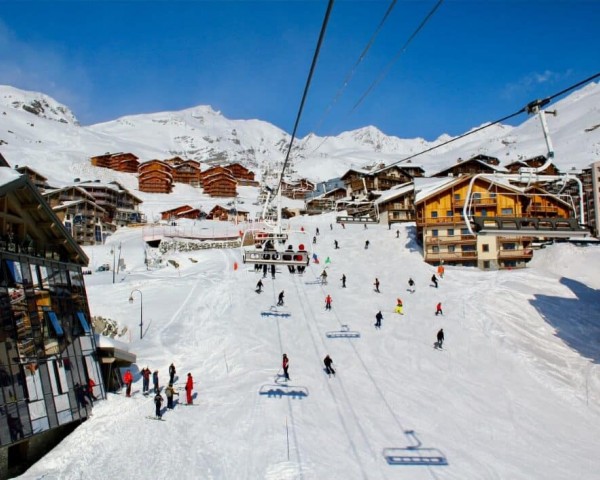Although French ski resorts need to accelerate their transition efforts, Domaines Skiables de France (DSF), the French Chamber of Ski Area Operators, reports that attendance at these resorts is stable.
In the 2023/2024 season, 51.9 million skier days were recorded, reflecting a 2% increase compared to the previous season. France remains among the top three countries for skiing, trailing only the United States, which reported 60.4 million skier days (an 8% decrease), and ahead of Austria, which had 50.1 million skier days (no change).
65% of French Customers
According to DSF, the French ski pass is, on average, the cheapest in the world—11% less expensive than the Austrian ski pass and 17% less than the Swiss ski pass. Day and half-day ski passes account for over a quarter of all ski pass usage, making up 28%; passes for short stays (2 to 5 days) represent 14%, and weekly passes account for 42%.
The French mountains are primarily frequented by domestic customers, who constitute 65% of visitors, while 35% are foreign customers, mainly from Europe. Among foreign visitors, the most prominent groups come from Great Britain (12%), Belgium (6%), and the Netherlands (5%).
Last season, the average revenue per skier day was 34.7 euros (adjusted for price variations). This is a notable increase from 22.9 euros in 2000 and 32.7 euros in 2020, just before the Covid pandemic. Each winter, approximately 10 billion euros are spent on the French ski resorts. For every euro spent on a ski pass, customers typically pay an additional 6 euros, totaling about 7 euros spent in resorts. This demonstrates that skiing remains economically viable.
French Ski Resorts Bet on Artificial Snow
Today, many resorts worldwide rely on artificial snow to sustain their economies. In France, the coverage rate of ski areas using artificial snow is 40%, 54% in Switzerland and 70% in Austria. This reliance is often highlighted in discussions about climate change and increasing water stress.
At the same time, French ski areas are aiming for carbon neutrality by 2037, which will be supported by the introduction of hydrogen-powered snow groomers in the regions.
The ski industry employs 18,500 workers, with 22% being permanent and 78% seasonal employees. Of the staff, 54% work in ski lift operations, 27% on the slopes, and 19% in administrative roles. Overall, 120,000 jobs depend on the operation of ski areas, including positions in retail, accommodation, ski schools, and more.












